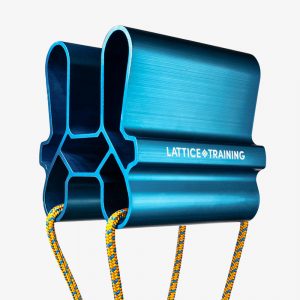Training Tips for Climbers: Monitoring Mental Fatigue
Fatigue is an important aspect in training that we should all monitor. We are all usually quite good at monitoring physical fatigue but, something else we should consider is mental fatigue. Mental fatigue is defined as a psychobiological state caused by prolonged periods of cognitive activity. It is a cumulative process which manifests both subjectively and objectively which includes increased resistance against additional effort as well as changes in mood. Due to mental fatigue being induced by prolonged periods of cognitive activity it is not constrained to just training. If we are to measure mental fatigue we need to consider the whole picture. Factors such as work life, studying and stress can all increase mental fatigue. An increase in mental fatigue has been shown to hinder both athlete’s physical and cognitive performance. These include: time to exhaustion, decision making and visuomotor skills. As you well know, these are all important factors for your performance as a climber.

So what can we do to reduce the effects of mental fatigue:
-
- Monitor: Mental fatigue affects multiple psychological measures, such as mood and perceived exertion. Something as simple as tracking your Rate of Perceived Exertion (RPE) after each session can be an effective tool for monitoring your mental fatigue. If your RPE is going up week on week for the same session and your performance is staying the same or deteriorating. Then this is a sign that you could be mentally fatigued. If you find this happening to you, consider reducing your training load or taking a deload week to allow your body and mind to recover from the fatigue.
- Plan: We know that mental fatigue is caused by prolonged periods of cognitive activity. If you know you have an upcoming work deadline, important exam or an event that is going to create a lot of stress coming up. Consider reducing your training volume through this period. Your body and mind are going to be exhausted from these external pressures so there is no point trying to cram in your normal training load alongside this and increasing your risk of injury. In the long term the reduced training volume will be worth it.
- Supplementation: When we are performing at our limit on long duration sport routes we are going to create periods of prolonged cognitive activity, which could induce mental fatigue. This means that your physical or cognitive performance could be hindered. Caffeine supplementation could be an effective strategy to help reduce the effect of mental fatigue and improve physical and cognitive performance. A study by Franco-Alvarenga et al, (2019) found that caffeine supplementation whilst mentally fatigued significantly improved 20km cycling time trial performance compared to a placebo whilst mentally fatigued (p=0.00). It should be noted that this a strategy for performing at your limit and should not be implemented in normal training. If you find that you are mentally fatigued regularly then consider talking to your coach or nutritionist about what you could do to reduce any potential mental fatigue.






